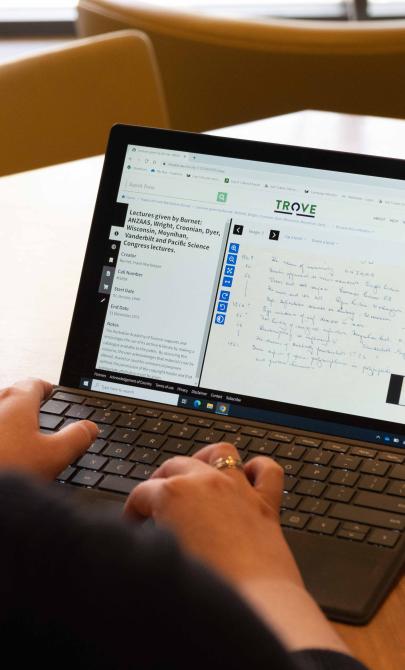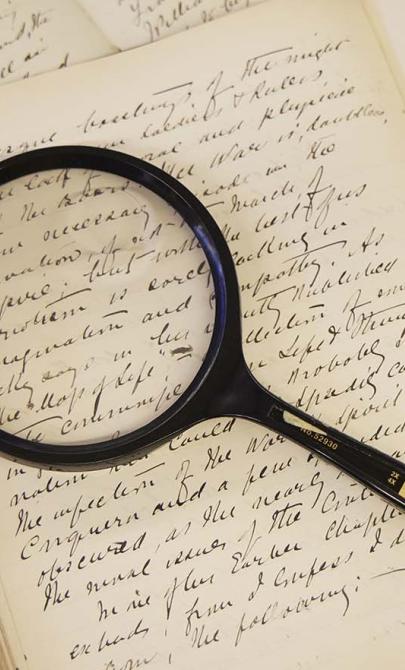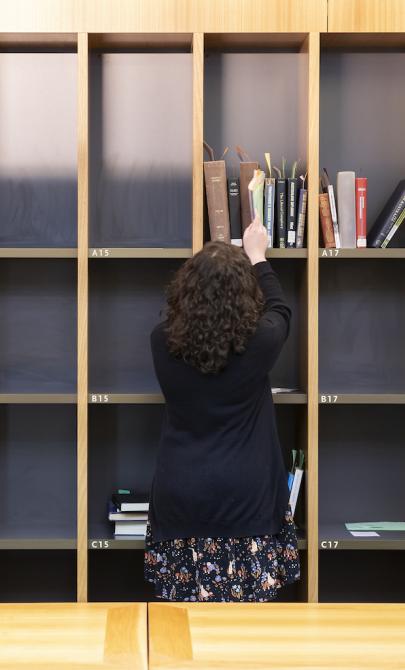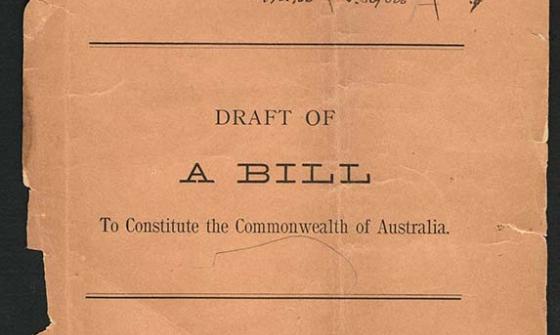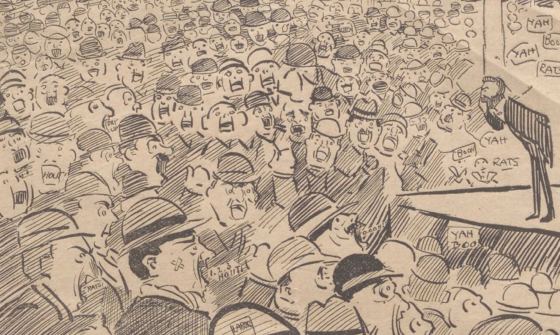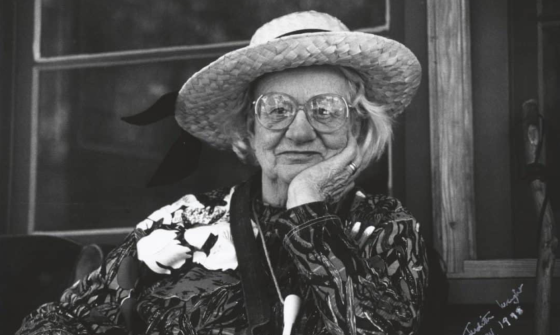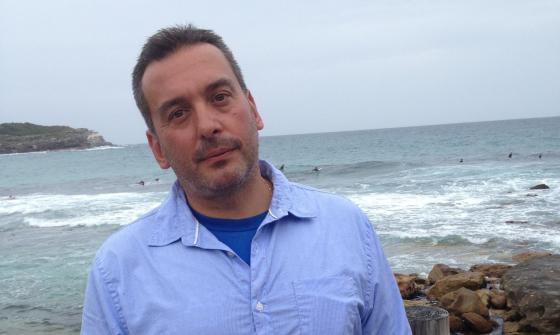Cameron Collection
Key items in the collection
The Clyde Cameron Collection includes a series of recorded conversations between Clyde Cameron and 12 individuals he knew throughout his long political career. He described these as ‘reminiscential conversations’ rather than interviews. Each recording captures personal recollections, reflections and commentary from both Cameron and his guest.
Notably, only two of the participants had been colleagues of Cameron in the Parliamentary Labor Party. Five were senior figures in the Liberal Party. The recordings are substantial in length and are among the longest held in the National Library’s collection.
The individuals who took part in the project were:
- Sir Garfield Barwick, Liberal politician and Chief Justice (1981)
- Dame Nancy Buttfield, Liberal Senator (1983)
- Sir Peter Lawler, public servant and diplomat (1983)
- Justin O’Byrne, Labor Senator (1983)
- Sir John Gorton, Liberal politician and Prime Minister (1984)
- Sir James Plimsoll, public servant, diplomat and Governor (1984)
- Sir Paul Hasluck, Liberal politician and Governor-General (1985)
- Malcolm Fraser, Liberal politician and Prime Minister (1986)
- Ian Sharp, public servant and arbitration commissioner (1988)
- James Toohey, Labor Senator (1992)
- Robert Corcoran, Australian Labor Party activist (1992)
- Ingrid Murphy, wife of Lionel Murphy, Labor politician and High Court judge (1992).
Cameron’s personal papers include:
- correspondence (mainly from 1970 to 2007)
- diaries (1976–77)
- memoirs
- speeches
- research material and notes
- records of the Australian Labor Party and the Australian Workers Union
- cutting books, pamphlets and printed ephemera
There are also substantial files relating to Pat Mackie, E.G. Whitlam and Bob Hawke.
About Clyde Cameron
Clyde Robert Cameron (1913–2008) was born in Murray Bridge, South Australia, and went to Loos Primary School and Gawler High School. From 1928 to 1936, he worked as a roustabout on sheep stations and later became a shearer. He joined the Australian Workers Union (AWU) and quickly rose through the ranks—becoming an organiser in 1938 and state secretary from 1941 to 1949.
Political career
At the 1949 federal election, Cameron was elected to represent the seat of Hindmarsh for the Australian Labor Party (ALP), holding the seat until he retired in 1980. He served several terms as president of the South Australian branch of the ALP (1946–48, 1958–59, 1963–64).
While in opposition, Cameron was a strong voice in the shadow Cabinet and a key figure within the party. He opposed industrial groups and the AWU leadership and played a major part in supporting Gough Whitlam’s leadership and the federal intervention in the Victorian branch of the ALP in 1970. After Labor won the 1972 election, Cameron became Minister for Labour, and later Minister for Labour and Immigration in 1974.
In June 1975, he lost Whitlam’s support and was removed from the ministry by the Governor-General. He reluctantly accepted a new role as Minister for Science and Consumer Affairs. His ministerial career ended with the dismissal of the Whitlam Government on 11 November 1975. He was appointed an Officer of the Order of Australia in 1982.
Interest in history and oral recording
Cameron had a deep knowledge of the Australian labour movement and was an avid reader. While in opposition in the late 1960s, he used the Library’s collections to research the early history of the AWU in the 1880s. After retiring in 1980, he returned to historical research.
He recorded a long oral history interview with Mel Pratt in 1971–72, and in 1981 became an interviewer himself, starting with an extensive interview with Sir Garfield Barwick. Over the next 12 years, he interviewed 11 other public figures.
Cameron’s passion for history also showed in the way he carefully organised, indexed and bound his large collection of personal papers.
Background to the collection
Clyde Cameron had a long and close association with the Library during his 31 years as a federal parliamentarian. In 1969, he stated that he would place his papers in the Library, and the first instalment was received in 1973. He added to the collection nearly every year until 2007. After his death, a final instalment was received from his family in 2009.
In 1971–72, Cameron recorded an oral history interview for the Library. In 1972, he arranged for the Library to receive tapes of speeches by trade unionist Pat Mackie. From 1981 to 1993, the Library provided financial and technical support for his project to record interviews with politicians and public servants. It also funded the transcription, indexing and binding of the interview transcripts.
The oral history recordings, along with bound transcripts and indexes, are held in the Oral History Collection at various locations. Each recording has been catalogued individually. Most recordings are subject to a 25-year access restriction before they become available to the public.
The manuscripts and personal papers are kept together in the Manuscripts Collection. Use a finding aid. Consolidated indexes of the letters and some other papers are shelved with the collection. Some items are subject to restricted access.
This guide was prepared using these references:
- Clyde R Cameron, The confessions of Clyde Cameron 1913–1990, as told to Daniel Connell, ABC Enterprises, Sydney, 1990.
- Bob Carr, Cameron and Barwick tell it as it is, The Bulletin, 16 February 1982, pp. 31–2.
- Bill Guy, A life on the left: a biography of Clyde Cameron, Wakefield Press, Adelaide, 1999.
- Kate Legge, Talking of history, just for the record, The Age, 3 August 1985, p. 9.
- Mel Pratt, Clyde Cameron interviewed by Mel Pratt, 1971–72, ORAL TRC 121/24.
